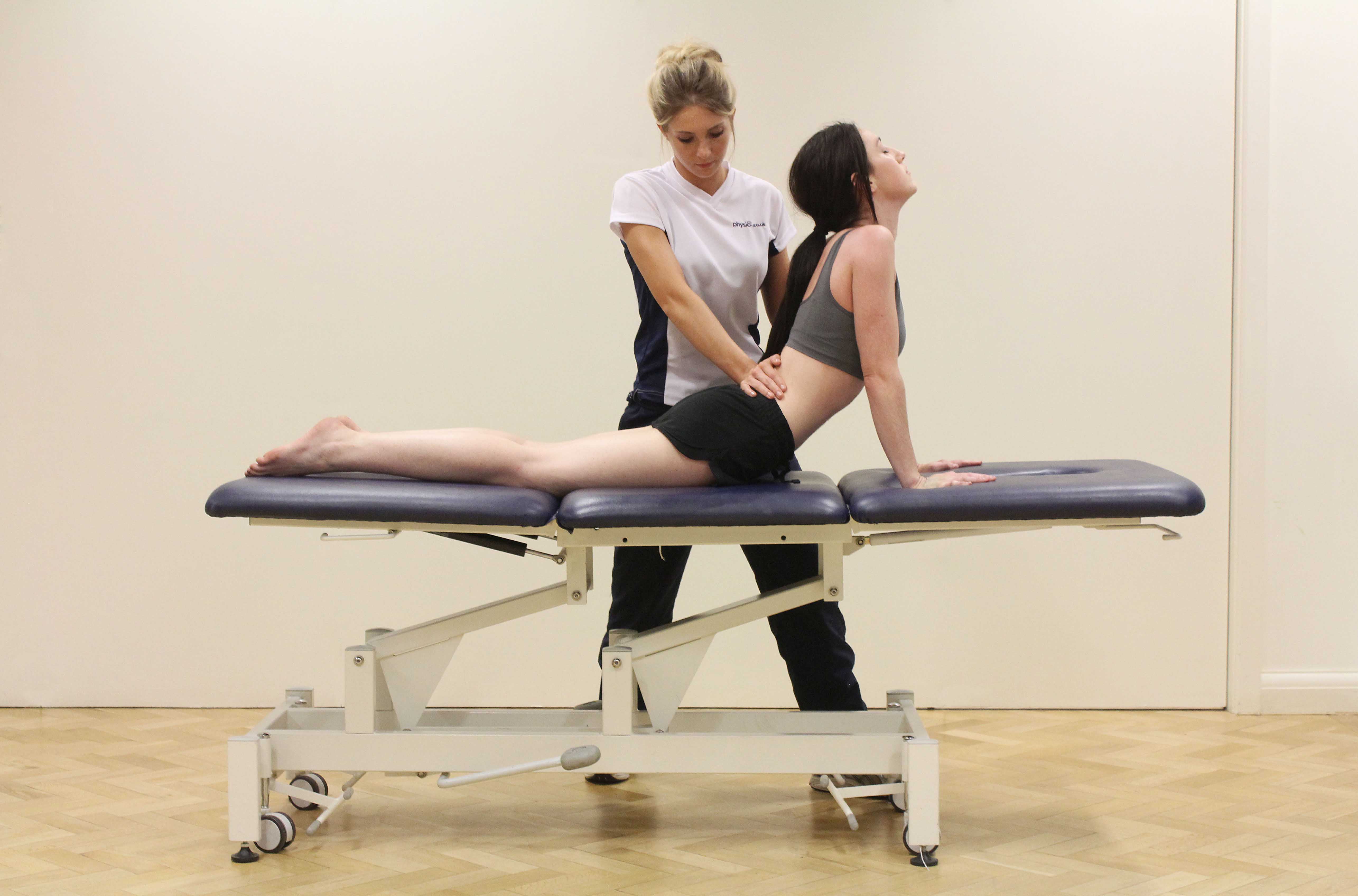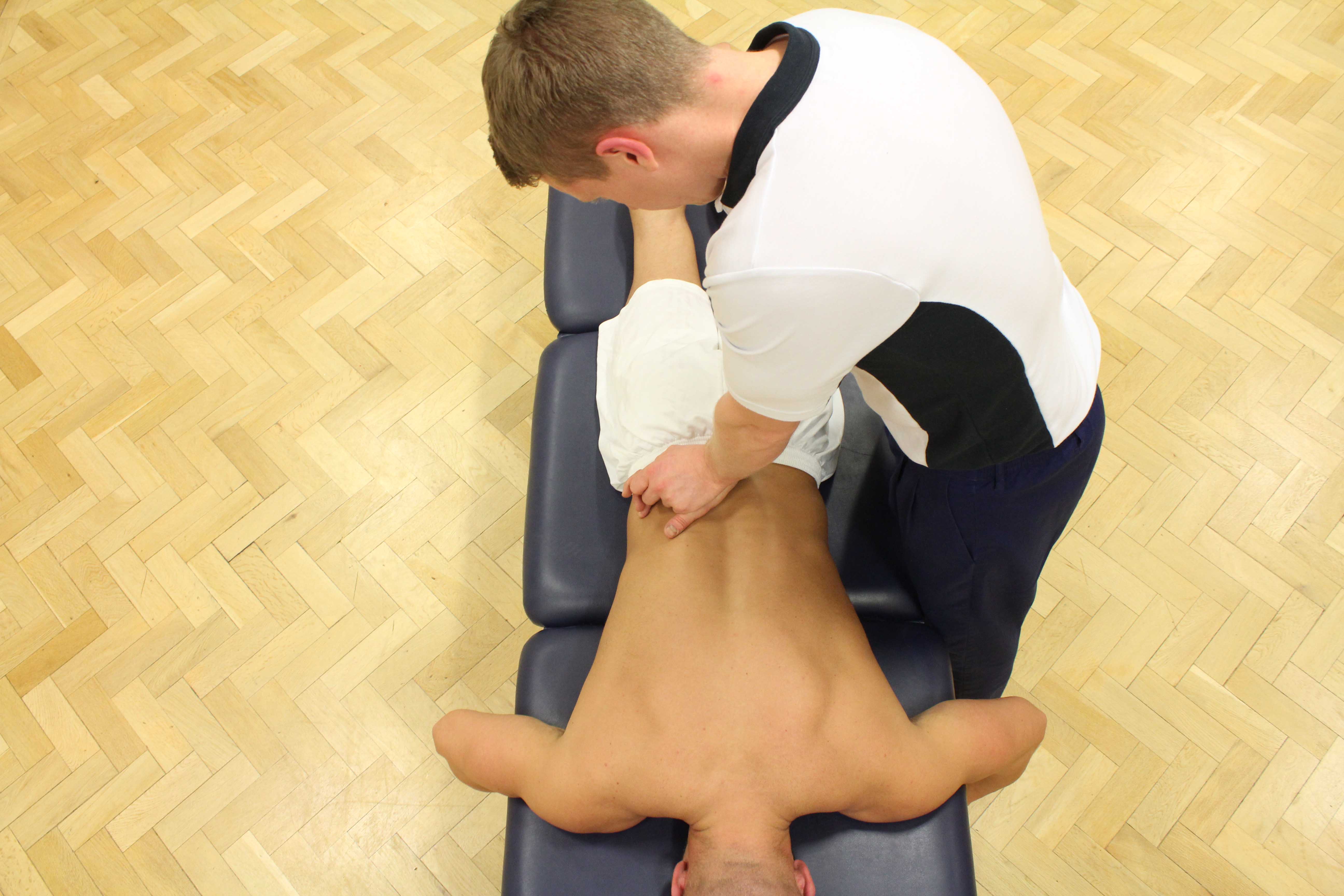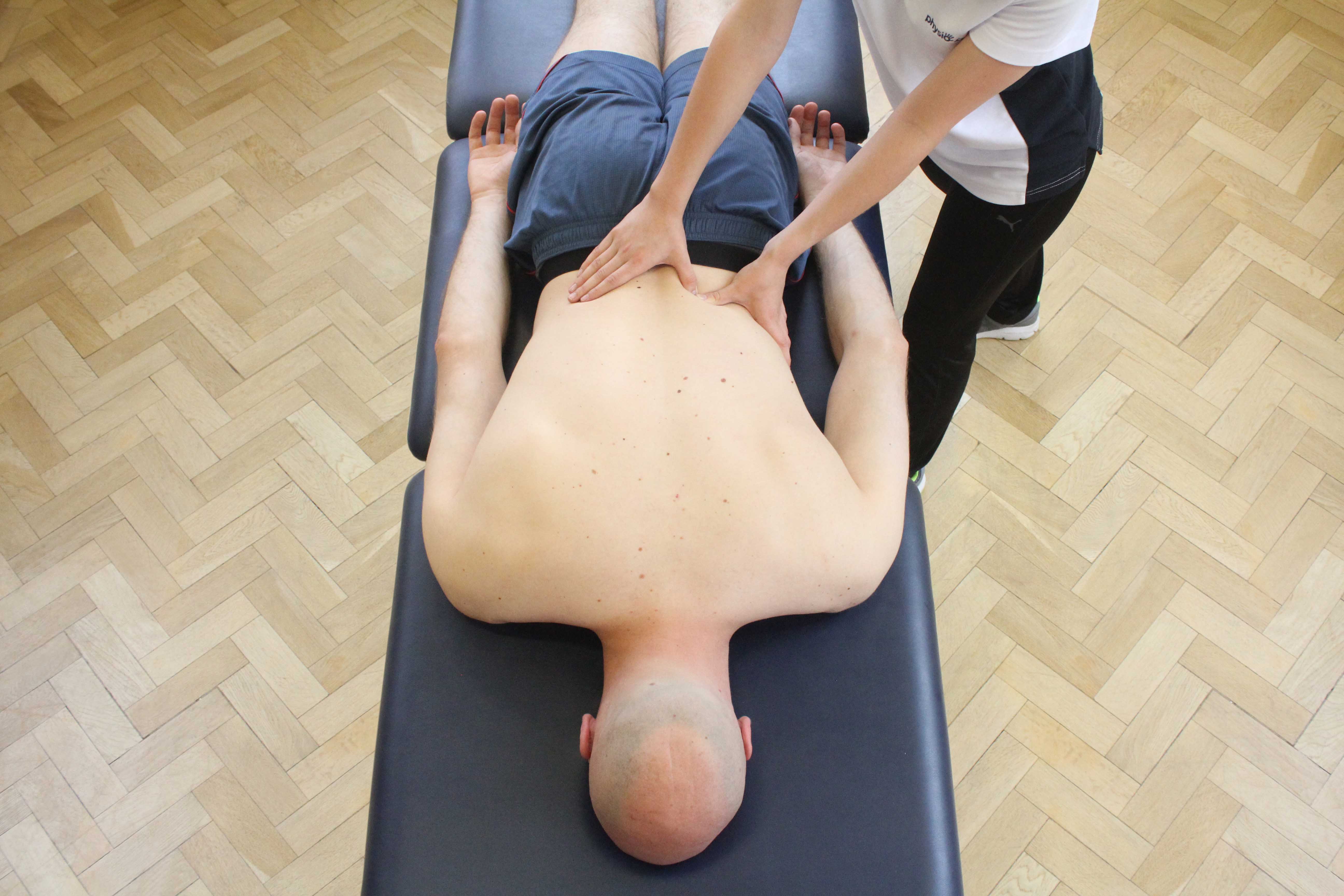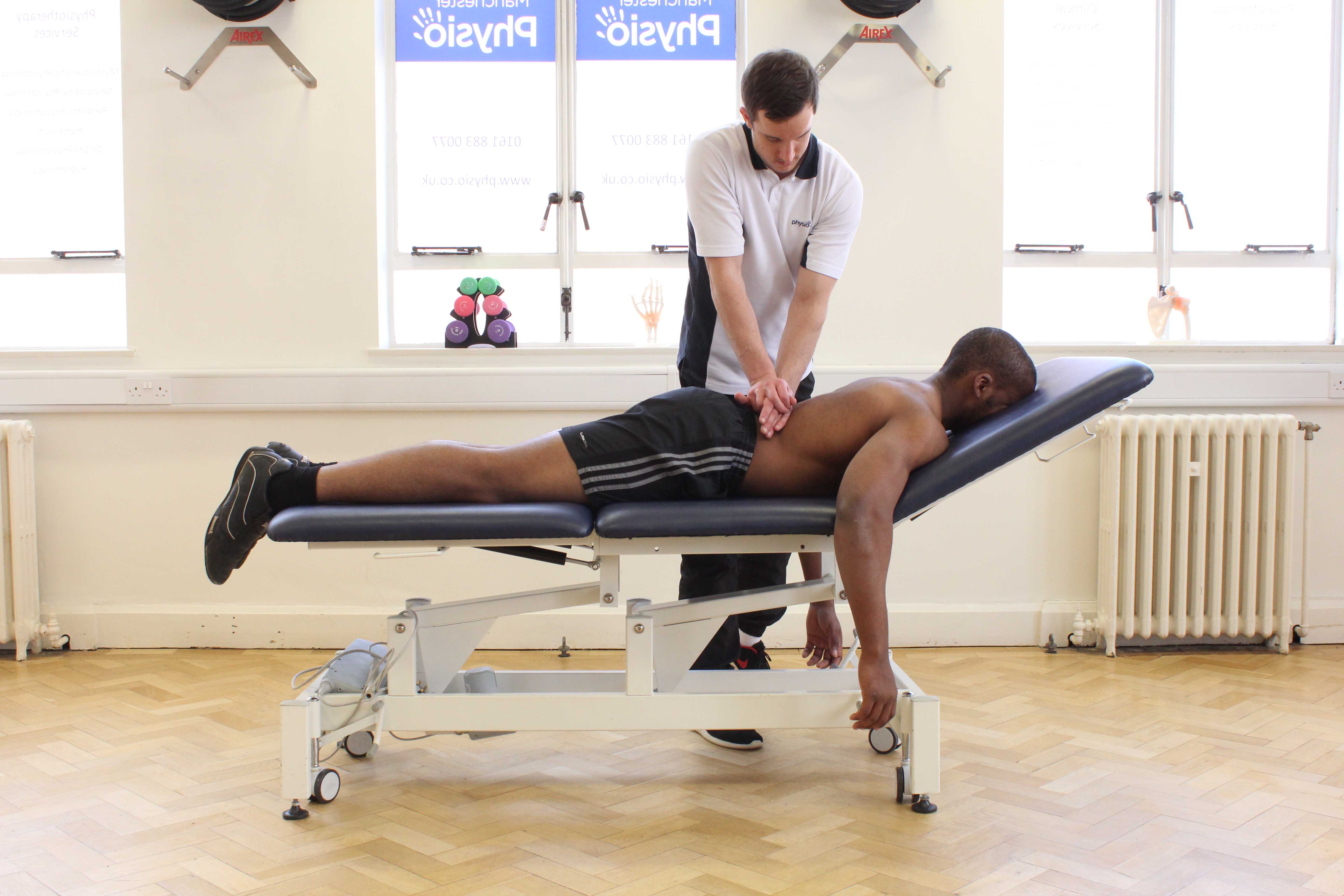What is a slipped disc?
A slipped disc is also known as a disc prolapse, protrusion or herniated disc and occurs when part of the gel-like disc between the vertebrae leaks out and makes contact with the nerves or spinal cord in that area. A physiotherapy programme should be started following the diagnosis of a slipped disc.
 Above: Stretches and compression of the lower back structures by therapist to relive painful symptoms
Above: Stretches and compression of the lower back structures by therapist to relive painful symptomsWhat causes a slipped disc?
Discs are made up of strong connective tissue that acts as shock absorbers in the spine and also allows movement. Each disc consists of a tough outer layer which protects a softer, more gel-like substance in the centre of the disc. If the outer layer gets damaged, small tears my form and cause the inner substance to leak out of the disc and come into contact with nerves or the spinal cord. Slipped discs commonly occur in people between the ages of 30 and 50 and are more likely to affect men than women. As people get older, the discs tend to dehydrate and are therefore more prone to tearing, making a slipped disc more common. There are other factors that make a slipped disc more likely including repetitive lifting of heavy items, sitting down for long periods of time such as driving long distances and being overweight.
 Above: Mobilisations of the vertebrea in the lower back by experienced therapist
Above: Mobilisations of the vertebrea in the lower back by experienced therapistWhat are the symptoms of a slipped disc?
If only a small part of the disc bulges outwards, there may only be very few, if any, symptoms of a slipped disc. However, in more severe cases, a slipped disc can cause another condition known as sciatica. The sciatic nerve is the longest in the body and runs from the buttocks, via the back of the pelvis, and down the back of the legs to the feet. Therefore any irritation of the sciatic nerve can cause pain, numbness and pins and needles in the buttocks and legs which is known as sciatica. Sciatica can also cause weakness in any of the muscles that are supplied by the sciatic nerve. Other symptoms of a slipped disc include:
What should I do if I have a slipped disc?
In most cases, slipped discs will require regular pain control medication and physiotherapy and can return to normal within 6 weeks. It is important that you still visit your doctor if you think you may have a slipped disc, as they will be able to rule out any more serious conditions and give you an accurate diagnosis. You should keep active and mobile from the beginning and start physiotherapy as soon as possible.
 Above: Trigger point massage of the lower back muscles by specialist MSK therapist
Above: Trigger point massage of the lower back muscles by specialist MSK therapistWhat shouldn’t I do if I have a slipped disc?
Do not ignore your symptoms or try and treat the condition yourself. Until you have received a professional diagnosis, you won’t know how serious your injury is. You should not stay in bed to avoid movement as this will also make your symptoms worse. You should also avoid any excessive bending and twisting movements and do not try and lift heavy items until you are fully recovered and these will all worsen your symptoms. Sitting for long periods of time such as driving will aggravate your symptoms and if you have to drive for your job, you may need to purchase a lumbar roll to support your back.
Physiotherapy for a slipped disc
Physiotherapy for a slipped disc should be started immediately and will involve gentle cardiovascular exercise such as hydrotherapy and cycling. An individualised exercise programme will also be provided including strengthening, range of movement and postural exercises. Other treatments can include:
 Above: Mobilisations of the vertebrea in the lower back by experienced therapist
Above: Mobilisations of the vertebrea in the lower back by experienced therapistDoes a slipped disc have any long-term effects?
Even when the symptoms of a slipped disc have subsided, it is important to continue your exercises to maintain the strength and support to your spine. For more serious cases which are not resolved by physiotherapy or medication, surgery may be advised. Physiotherapy is also very effective to optimise recovery after surgical procedures for slipped discs.
To arrange a physiotherapy appointment call Physio.co.uk on 0330 088 7800 or book online.

 0330 088 7800
0330 088 7800

































